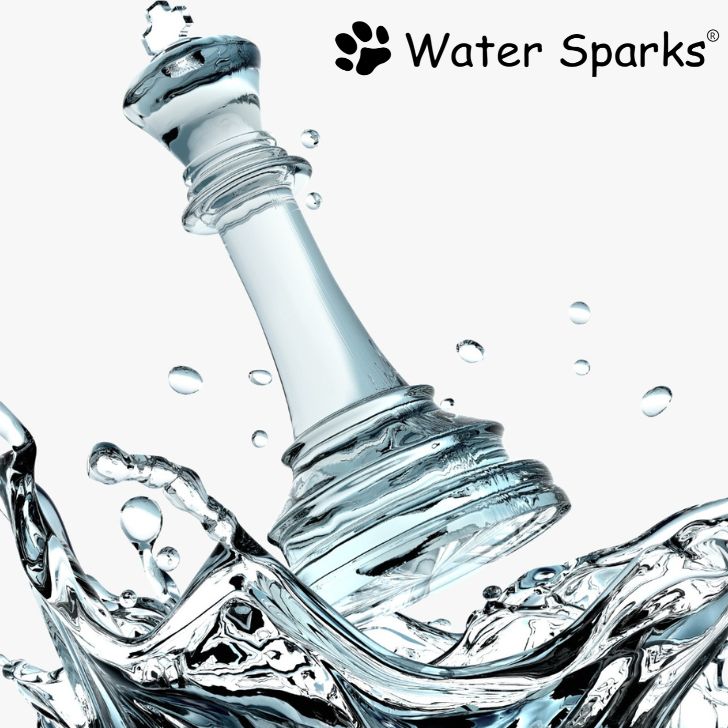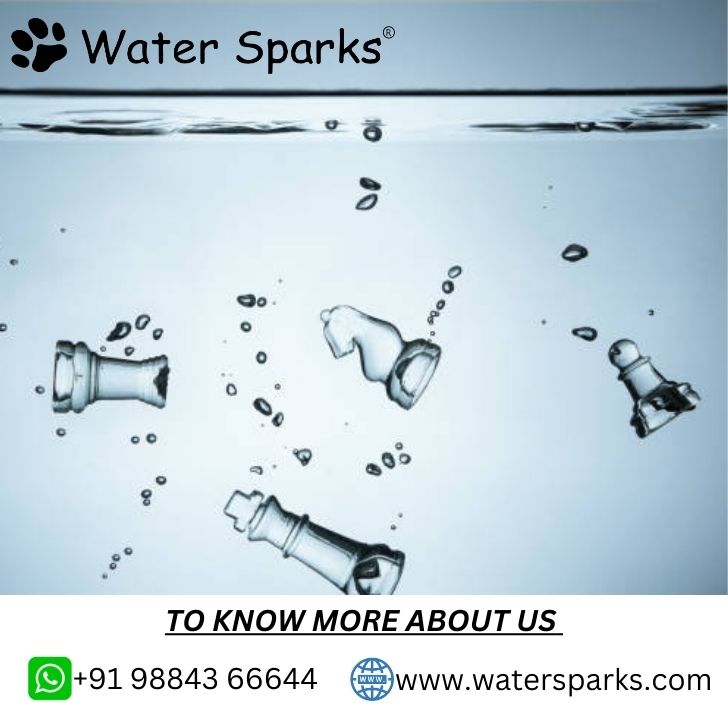Make Right Decision in the Game of Water....!

Indians can feel especially gratified because their champion, Praggnanandhaa, won silver in the FIDE World Cup after putting forth a strong effort throughout
the entire competition, not just in the finals. He encourages individuals to join in on chess and enjoy themselves without getting frustrated.
Chess is a way of life in addition to being a game. In many respects, chess resembles normal life. Many folks aren’t even aware of learning important habits
from practicing chess. Chess is a testing ground for many skills, including the ability to make decisions swiftly and under stress to compute, to be creative, to
evaluate and analyze, to strategize, and to continuously improve one’s performance.
Make quick decisions necessary. Chess is played in a set amount of time. We may run out of time toward the final moments of the game, and in that brief
window, we must decide which move to make. Some of the decisions must be made in a matter of milliseconds. When we choose wisely over such a limited
period, then may secure the game. There are times in life when we must make snap judgments. The better our decisions are made quickly, the superior our existence will be.
Chess entails executing bold moves and following through with them. When we plan as well as take action in life, we must also be careful to stand on our feet and fight for what we perceive to be in our highest interests.
We must make decisive selections quickly to avoid making mistakes in a straightforward game. Have you ever considered making such important judgments about items that are vital for our everyday lives, such as how to design a house?
Yes, thoroughly reviewing the criteria is essential before developing anything. Similar to this, understanding the necessities of daily life, especially the water
we consume, is highly valued. Does the water you use regularly to carry out numerous activities leave behind blemishes that are almost tough to remove or cause the floors and appliances to get paler over time?

Indeed, you have to examine the water quality in the vicinity before constructing your opulent space to determine what caused the mistake. The water that emerges from your plumbing may come from a bore or a metro and may contain a high concentration of calcium, magnesium, or any other chemical composition, making it appear to be hard water.
The issues brought on by hard water, which range from clogged pipes and inadequate boilers to premature hot-water equipment failure, have been widely
understood by many owners of business properties and facilities managers. They might not always be aware of how hard water affects things like energy consumption, the environment, and the life expectancy of plumbing systems.
Hidden Challenges in Hard Water
ENERGY INEFFICACIOUS
Energy utilization and related repair costs are seriously affected by hard water. To keep a business facility operating at its best efficiency and profitability, water
heaters, boilers, and piping equipment need to be serviced. Rock that gets dispersed in hard water develops up on heating elements and inside surfaces of boilers, producing scale build-up and reducing efficiency. Scale accumulation makes the system less effective at heating the water around it, requiring more energy to run (increasing utility costs).
MACHINERY REINSTATEMENT
Due to high failure rates and the requirement for costly restoration or alternatives, the service life of equipment with a hardness scale is decreased. Occasional
blowdowns are frequently employed to preserve equipment by expelling pollutants to the sewer, however, this wastes water, energy, and chemicals as new
water that must be nourished to the boiler.
ENVIRONMENTAL DAMAGES
Hard water-using facilities must use a higher significant number of chemicals and cleansers to attain the same cleaning outcomes as those produced by softened water. Detergent use rises by 2 to 4 percent per 1000 gallons of water for every grain of hardness. Furthermore, additional wastewater and pathogens are sent down the sewers as a result of hard water.
QUICK FIX
Utilizing a device that softens water, which lessens the ions (calcium and magnesium) that lead to scale or trigger problems with hard water, can easily reduce these issues. As a result, equipment that uses hot water is less likely to overheat and accumulate scale. The necessity of detergent or chemicals, as well as the repair and upkeep of equipment, can all be reduced by using soft water.
Choosing the appropriate system. Commence via an expert water analysis and site study to identify your water’s hardness or other potential concerns regarding water prior to executing the switch to soft water. There are plenty of water- softening options accessible; but, to be sure you’re getting the finest suggestion for your particular situation, constantly seek the advice of an experienced, local
water treatment technician.
That is why I suggest hitting a WATERSPARKS that has more than 20 years of expertise, competent staff, and cutting-edge machinery that creates results that are superior to others.
A 500 LPH RO Plant (liters per hour) from their water treatment plant, especially intended for households, hospitals, educational institutions, accommodations, and factories, is only 2 feet by 2 feet by 5 feet, making it possible to fit it anywhere in a prohibitively costly city where the expense of owning land is higher. They offer whole house water softening treatment, a whole house RO plant, a whole house iron removal plant, and are licensed to carry out their services throughout India.
They go over numerous processes carefully, answer every single one of the queries we have, and assist us with looking after the treatment plant at regular intervals. As previously stated, we must make decisive judgments in these vital matters in advance before they turn out to be severe.
Kindly consider your options and decide wisely. Get in touch with Watersparks at +91 9884366644, +91 9884257744, or visit their official website at www.watersparks.com for other details.
